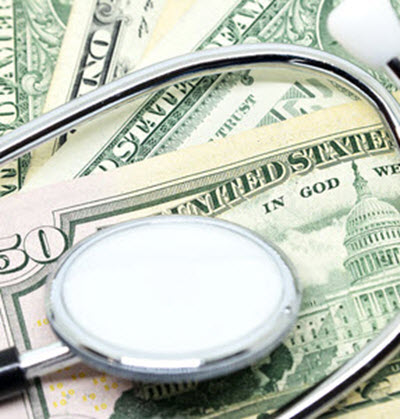In Alabama, Who Is Responsible for the Medical Bills of Incarcerated People?
Medical treatment is expensive, and most people do not have enough savings or extra income to cover an unexpected expense. Therefore, it is often a struggle for healthcare providers to collect payment from uninsured payments or, in the case of insured patients, to collect the portion of their payment not covered by insurance. Taking patients to court in an attempt to get a judgment is time consuming, and when patients do not have enough to pay the judgment, going back to court to get the patient’s wages garnished is even more work for the creditor, not to mention financially ruinous for the patient. Medical bills are a major contributor to financial insecurity for individuals and families in Alabama, and involvement with the criminal justice system is another obstacle to many patients’ ability to pay their bills. When it is a choice of paying a fine for a criminal offense or paying a medical bill, the consequences of not paying the fine to the criminal court are worse. The negative effects of incarceration on a person’s earning potential last well beyond his or her release from jail or prison. If you are a healthcare struggling to collect payment for services you provided to patients while they were incarcerated, contact an Alabama creditors’ rights lawyer.
Who Pays the Bill: The Patient or the County?
According to Alabama Code Title 14, the county where a person is incarcerated is financially responsible for providing medical treatment to him or her during his or her incarceration. In practice, the sheriff of each individual county has great flexibility in the interpretation of this law. In Baldwin County, for example, inmates pay a modest co-pay, no more than $15, even for doctor visits and treatments that take place outside the correctional institution. Meanwhile, in Mobile County, Sheriff Sam Cochran holds some patients responsible for the full cost of their treatment. Lauderdale County sheriff Rick Singleton said that it is unfair for the county to pay for inmates’ treatment; he cites a $300,000 medical bill the county paid when a man serving a brief jail sentence for misdemeanor public intoxication needed emergency open heart surgery.
Medical Collections and the Eighth Amendment
The Eighth Amendment to the U.S. Constitution protects people from excessive fines, excessive bail, and cruel and unusual punishment. According to ProPublica, requiring patients to pay for medical bills they incur while incarcerated amounts to an excessive fine, and therefore a violation of the patient’s constitutional rights. When you are in prison and excluded from the workforce, it is hard to afford even a $5 co-pay. Many incarcerated patients’ families go out of their way to keep the bill collectors at bay by making payments on their incarcerated family members’ bills.
Let Us Help You Today
You may be able to collect payment for medical services provided to inmates by billing the counties where they were incarcerated. An Alabama creditors’ rights attorney can help you explore your options for collecting medical debts. Contact Cloud Willis & Ellis for help.


